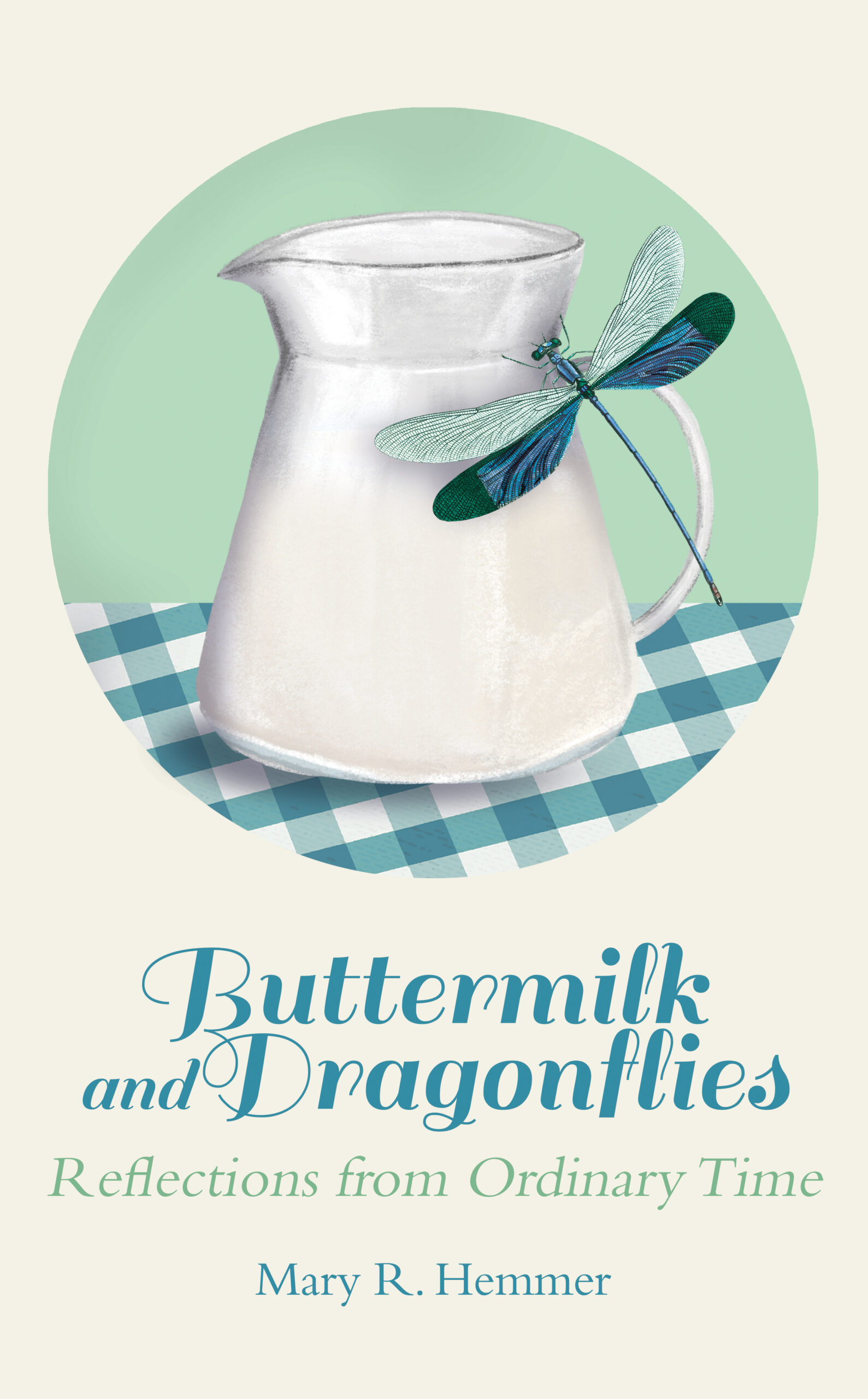The beginning of Mary R. Hemmer’s BUTTERMILK AND DRAGONFLIES: Reflections from Ordinary Time speaks volumes about what kind of book this is going to be: “Holy Scripture is like a prism: it is not God or even Ultimate Truth, but it does capture the light of Truth, reflecting it in different ways.” She goes on to admit that the above simile was taken from a rabbi, which is also telling. Above all else, this is a book about keeping an open mind about faith and how to approach it with positivity. The author claims to have written this from an Episcopalian (and former-Baptist) perspective, but this proves a valuable read for any Christian who’s willing to evolve in their faith (regardless of whether they honor the Sabbath or not). Even non-Christians would be able to identify with the meditative, playful, and wonder-stricken relationship with life that Hemmer is aiming to guide us toward here.
Throughout BUTTERMILK AND DRAGONFLIES, Hemmer quotes from numerous Bibles (though usually the New Revised Standard Version), close-reading different verses to show why she prefers some translations to others. She even invites the reader to disagree with her: “Your prism won’t reflect God’s light as mine does, and you might find contradictory patterns between us. That’s as it should be!” All of this only makes her talking points more welcoming, as she humbly points out that she (nor anyone else) can claim to perfectly understand or explain everything in the Bible as it was originally intended.
Wisdom in this book is largely grounded in personal experiences and compelling anecdotes, such as a woman who came to the author in need of hearing that her late husband wasn’t burning in hell—or Hemmer being lectured for being a female priest. Among other things, her take on why the expression “What Would Jesus Do?” could use an update and her explanation of why some people don’t like to refer to God as “Father” genuinely meet people where they are. Sometimes she can get a bit sentimental when describing a specific moment in life that moved her, but such moments don’t last very long.
Hemmer’s casual voice skillfully weaves through personal anecdotes and explains what they mean to her. The sincerity and humor in her authorial voice is consistent, reflected even in chapter names: “For the Sport of It,” “God the Father and Father’s Day…It’s Complicated,” etc. Based on the book’s own title, readers might expect more cooking (which basically disappears in the second half) and dragonflies (only in the end). It’s also worth noting that the book’s focus on Ordinary Time and the Sabbath comes and goes, but the theme of finding the extraordinary in the ordinary still ties things together well enough. The inconsistent use of dashes and occasional typo likewise hardly distract us from BUTTERMILK AND DRAGONFLIES’ overall aesthetic.
This slim book comprises brief chapters made of short paragraphs, which makes it highly readable in any context. Also, since it has no overarching plot, readers can pick up whatever chapter they need most in the moment. Overall, if you only have a few minutes to spare but could really use some guidance or reassurance, BUTTERMILK AND DRAGONFLIES could be that little boost to get you through your day—whatever day that may be.
~J.S. Gornael for IndieReader


